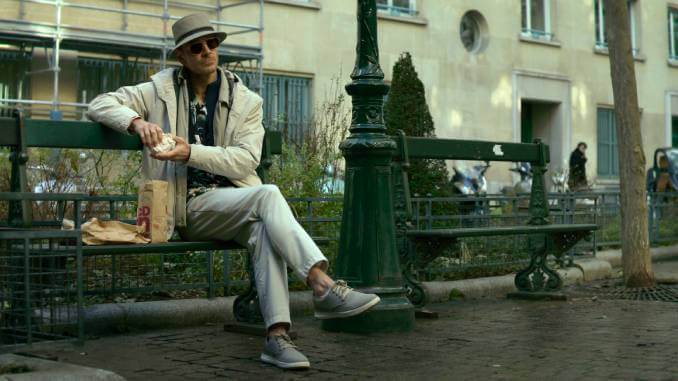David Fincher Mocks Optimized Living with Wry Thriller The Killer

Naturally, an unnatural filmmaker like David Fincher could only make a hitman movie like The Killer. Adapting a vivid-yet-cold graphic novel into a thrilling-yet-mundane piece of character work, the Titan of Takes meticulously creates a nameless assassin who’d prefer if he wasn’t human at all. A technological man for technological times. Michael Fassbender’s narration-heavy performance as the Killer is one of robotic self-delusion. He is a man who loves perfection, who loves planning. A man who loves challenging executions and loves to think of himself as someone who—if he could just plan enough—is capable of anything. Embedded in his eventual failure is self-effacing humor, mocking this very ideal. It’s easy to pretend that you can optimize your life to programmatic perfection. There’s a whole industry devoted to this capitalistic goal, filled with productivity apps, tech wearables and organizational best practices. The Killer uses this worldview as its setting to ask, “Ok, what happens when you miss?”
As little as the Killer would like to admit it, The Killer is a revenge story. Whether that’s revenge for a brutal beating inflicted upon his single personal connection after he fails to kill his target, or simply revenge for his own wounded pride after screwing up, well, that depends on how much credit you give his sense of humanity.
I lean towards the latter.
The Killer isn’t a self-aware guy, and Fincher-favorite writer Andrew Kevin Walker (Seven, rewrites of The Game and Fight Club) knows how to turn obnoxious, comic-like voiceover into revealing psychological commentary. As the Killer applies his expertise to his handler (Charles Parnell) and his billionaire client (Arliss Howard), we get a good sense of the guy. Though the film is light on dialogue, it’s heavy on an inner monologue primed and ready to be misapplied by the same incels who still refer back to their Fight Club DVDs. It’s not that Fincher hasn’t evolved, it’s that his losers have. The Killer refers to some suburbanites as “normies,” and you wonder if, after seeing his work co-opted as copypasta, Walker is now conversing directly with the edgelords.
Maybe that’s why, despite his surface similarity in appearance, profession and aesthetic to Le Samouraï, the Killer is intentionally not the “cool” kind of hitman. He’s not John Wick. His anonymous clothes aren’t slick; he describes his hat (the dark spawn of a bucket hat and fedora), Hawaiian shirt and dingy khakis as “German tourist” chic. He doesn’t even have the spartan, down-here-by-choice aloofness of Alain Delon’s hitman, who shares his debonair squalor with broke artists and slumming rock stars. The Killer isn’t cool at all. He’s disguised himself so long as a middle manager on a business trip that he’s become one. He’s your friend’s dad, always traveling for work, addicted to his Apple Watch and airport amenities. His life is a series of suitcases, lines, and Ubers.
Fincher’s process-focused photography—cut with precision by editor Kirk Baxter, framed with hard lines and a little more distance than you expect by cinematographer Erik Messerschmidt—makes it clear the Killer is going through the motions, whether those motions are assembling his sniper in the middle of the night, dumping those gun parts, or stopping by McDonald’s for an Egg McMuffin. It’s not edited into a series of whipcracks, like the movements of Edgar Wright, but savored—this is soothing repetition. Each iteration constructs an environment of comforting familiarity in which to commit and get away with murder.
The Killer needs this. Despite the calm he projects, his own habits betray him to us. His racing heart beeps out from his wrist monitor. His mantras (“stick to the plan” and “prevent empathy”) grow desperate. He clings to his routine like a security blanket. The façade of detachment, present in all assassin movies, doesn’t last long amid the thrumming soundscape from Trent Reznor and Atticus Ross. What persists is the feeling that we’re all on the cusp of living like him.
Fincher makes this unsettling case by abandoning the lifestyle that cast cinema’s other lone wolf professional murderers to the fringes of society. Or at least, updating it. The COVID-era Killer realizes that our world’s most mainstream services enable, if not encourage, isolation. You can order food, check into a place to stay, buy everything you can think of online—and you can do it all without telling the world one true thing about yourself, if you’ve got the money in your account. The Killer is constantly namechecking the culture-flattening companies making his endeavors easy as he treks from Paris to Florida to Chicago: McDonald’s, WeWork, Amazon, DoorDash. All the hands-off services that define the transactional anonymity of 21st century living.
-

-

-

-

-

-

-

-

-

-

-

-

-

-

-

-

-

-

-

-

-

-

-

-

-

-

-

-

-

-

-

-

-

-

-

-

-

-

-

-








































